EDUCATION
EDUCATION
CREDIT SCORE EDUCATION
WHAT IS A CREDIT SCORE?
When it comes to borrowing money from financial institutions, like when you are hoping to purchase a car or a home, you need to show lenders that you’re a qualified borrower. To show credit worthiness, your credit score is the number generated by an algorith that predits how likely you are to pay back your loans. Ranging anywhere from 300 to 850, the better your score, the more likely you are to be approved for a loan (or more money, when needed!) If your score ranks lower, the less likely you are to be approved for a loan, or, certain lenders will lend you money at very high interest rates. Having a high credit score not only opens many doors when it comes to helping you achieve your goals, but it also helps you save thousands of dollars over the life of your credit card, auto loan, or mortgage.
HOW IS YOUR CREDIT SCORE CALCULATED?

CREDIT REPAIR CLINIC EFFECTIVELY FIGHTS NEGATIVE MARKS IN YOUR HISTORY.
- Regardless of your ability to pay off credit cards, Credit Repair Clinic knows how to maximize your debt to income ratio.
- You might be unaware that the average difference between your lowest and highest credit score from Equifax, Experian, and TransUnion is 60 points. We’ll fight to remove credit inquiries from your report. These credit bureaus have varying information on their reports that can range from correct, incorrect, to not reported in full comliance with credit law. Nearly 80% of all credit reports include serious errors, so Credit Repair Clinic works to identify and eliminate the negative impact of mistakes.
- As a guarantee for our success at helping vastly improve your credit, if at least 25% of negative credit items from all three of your credit reports are not removed, we will refund 100% of your fee!
TIPS TO RAISE YOUR CREDIT SCORE
WHILE WE START THE CREDIT DISPUTE FIGHT WITH YOU
While the pain and hardships of poor credit can weigh on you and make you feel helpless, you are not powerless! There are numerous tips we encourage you to do while we begin the process of fixing your credit. First, and most importantly, try to pay every bill on time. Whether it’s a mortgage payment, utility bill, auto loan, or credit card.
You are also able to check your credit report for free once a year. This will allow you to see what type of information appears and check for its accuracy.
Good financial habits can be built, so begin working on never charging more than 30% of your available balance on any credit card. As banks and financial institutions like to see records on timely payments and credit cards with available balances. If you have revolving balances or maxxed out cards, then definitely work to pay them down to 30% — make it a priority!
Some people may think credit cards are part of the problem, but using your credit cards responsibly is actually a good thing. Rather than never using a card again, the best policy is running utility bills on your credit card each month and then paying off the balance in full by the due date. Not only does this ensure that your bill is paid automatically and on time, but this will allow your credit score to go up.
Even if you have stopped using a certain credit account, try to keep your accounts open as long as possible. The length your accounts have been active is one of the major factors in calculating your credit score.
More than anything, do not feel discouraged and remain confident in the process. Rebuilding your credit takes time, but following the steps above will help you build strong money habits that will play a major factor in your strong credit over time. When your credit has increased, you’ll be able to qualify for better loans at lower interest rates. This doesn’t happen over night, so just be consistent and don’t give up! You will get there. And Credit Repair Clinic will help you along the way!
HOW LONG WILL NEGATIVE ITEMS REMAIN IN MY CREDIT FILE?
- Delinquencies (30- 180 days): Any delinquencies can stay on your report for 7 years (from the date of the initial missed payment).
- Collection Accounts: These can stay on your report for 7 years (from the date of the initial missed payment) that led to the collection (the original delinquency date). When you pay your collection account in full, it’ll be noted as a “paid collection” on your credit file.
- Charge-off Accounts: This reflects when a delinquent account is sent to a collections company. These marks remain for 7 years from the date of the initial missed payment that led to the charge-off (the original delinquency date), even if payments are later made on the charge-off account.
- Closed Accounts: Closed accounts are not available for further use and may or may not have a zero balance. Closed either by the consumer or the creditor, closed accounts with delinquencies stay on your file for 7 years from the date reported closed. Delinquency notations are removed 7 years after the delinquency occurred when pertaining to late payments. Positive closed accounts continue reporting for 10 years from the closing date.
- Lost Credit Cards: With no delinquincies, credit cards reported as lost will stay listed for 2 years from the date the creditor is contacted. Delinquent payments occuring before the card reported lost will remain for 7 years.
- Bankruptcy: Chapters 7, 11, and 12 will remain on a credit report for 10 years from the filing date. A Chapter 13 bankruptcy is reported for 7 years from the filing date. Accounts included in a bankruptcy will remain for 7 years from the date reported as included in the bankruptcy.
- Judgments: Remain 7 years from the date filed.
- City, County, State, and Federal Tax Liens: Unpaid tax liens remain for 15 years from the filing date. A paid tax lien will remain on one’s score for 10 years from the date of payment.
- Inquiries: A majority of inquiries listed on one’s credit report will stay for two years. All inquiries must remain for a minimum of 1 year from the date the inquiry was made. Some inquiries, such as employment or pre-approved offers of credit, will show only on a personal credit report pulled by you.
INFORMATION THAT CANNOT BE IN A CREDIT REPORT:
- Medical information or history (unless provided with your consent)
- Notice of bankruptcy (Chapter 11) older than 10 years old
- Debts (including delinquent child support payments) older than seven years old
- Age, marital status, or race (if requested from a current or prospective employer)


